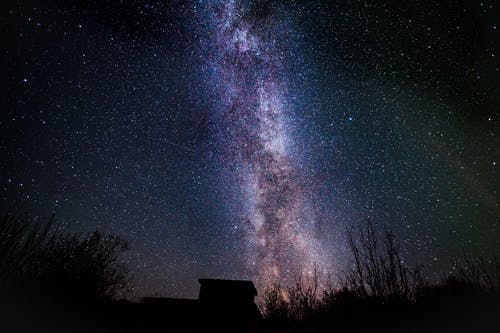Ingredients: Part 1c
When that recognition dawned upon him–“I’m in the presence of deity”–what was his reaction? To fall at His feet overcome with a sense of reverential awe and dread that made him blurt out, “Depart from me, Lord. It’s not fit that You and I should be in such close proximity.” And yet that very reaction was coupled with the most intense longing to be with Him; to be with Him so much that he leaves his business, his home, his friends and follows Him. And there’s no jangling of these concepts. Without those two concepts being present in the heart of a man, it’s doubtful there’s any true attachment to the Christ of Scripture. The idea that we can just snuggle up to Jesus and feel so much at home with Him without this sense of our sinfulness; making us want to cry out, “Depart from me, Lord. It’s not fit that You and I should enter into intimate relationship.”
And yet, wonder of wonders, He’s so revealed to us the heart of God and its love and in its way of forgiveness, that we cling to Him. And like these disciples, by His grace, are willing to forsake all to follow Him. Here you have Isaiah 6 repeated. Here is not only a creature in the presence of deity but a sinful creature who senses something’s wrong that they are so close: “Depart from me, Lord.” And yet at the same time when the commission comes, there is the glad response even as there was with Isaiah. You see, unlike that fear of dread and terror that makes a person want to run from its object, this dread, this fear, this awe, this reverential veneration is perfectly consistent with attachment and with love.

One other example from the New Testament: Revelation 1. John is in the spirit on the Lord’s Day, and he receives this vision of the glorified Christ as He now is amidst the candlesticks, that is, in the midst of His church. And as John has this, what is called an apocalyptic vision, there is this unique symbolism. He sees this personage with a sword proceeding from His mouth; His head and His hair white like wool, as white as snow; His voice when it speaks sounds like the dashing of seas upon the shore. What is John’s reaction to this vision? Verse 17: “And when I saw Him, I fell at His feet as dead.” He said, “My life was overcome.
This sight of the transcendent glory and majesty of the Son of man in His position of exalted glory overcame me. I felt as though life had gone out from me.” And yet this same one lays His right hand upon John and says, “Fear not; I am the first and the last: I am He that liveth, and was dead; and, behold, I am alive for evermore,” and then enters into the most intimate dealings with John. So here you have again an example of this fear and reverential awe that overcomes a man, and yet at the same time captures a man and brings him into intimate relationship with his object.

So in summarizing, I believe it is accurate to say that that fear of God, which is the soul of Godliness, is a fear which consists of awe, reverence, honor, and worship, and all of these things in the highest level of their exercise. And I just quoted that sentence. It is the reaction of our minds and spirits to a sight of God in His majesty and His holiness. As Professor Murray has so accurately said in seeking to define the fear of God, “The controlling sense of the majesty and holiness of God and the profound reverence which this apprehension draws forth constitute the essence of the fear of God.” Or to use the definition given by John Brown in his exposition of 2 Peter where he deals with a little phrase “fear God,” he says this: “The fear of God consists in cherishing an awesome sense of the infinite grandeur and excellence corresponding to the revelation God has made of these things in His Word and in His works, inducing in us a conviction that the favor of that God is the greatest of all blessings and His disfavor is the greatest of all evils.”
The practical effect of all of this is so clearly seen when the Apostle Paul, in describing the state of all men by nature, brings as a pivotal and capstone description of the state of unconverted men in Romans 3:18: “There is no fear of God before their eyes.” You know why some of you live the way you do–indifferent to the claims of God’s holy Law; indifferent to the overtures of the Gospel of His dear Son? It’s because you do not live life with the fear of God before your eyes. You do not have a sight and sense of His infinite glory and majesty eliciting, drawing from your heart that longing to walk so as to please Him and never to walk in a way that would displease Him. That’s why you live the way you do.
There is no fear of God before your eyes. You look out at life and what you want, and you set yourself in a way to obtain it. What your lusts dictate, you do. What your desires and appetites crave, you pursue. And the fear of God, that is, that controlling sense of His majesty and holiness and the profound reverence which that draws forth–that is nothing to you; no part of it is in you. So I trust, as we’ve looked at these examples and sought to share these formal definitions, that you have somewhat of an understanding of what the fear of God is, particularly this second aspect, the fear of reverential awe.
Now that being so, I trust our minds are already anticipating our next area of consideration: what are the essential ingredients of the fear of God? I think they will be obvious to all of us. Let me give you the heads, and we’ll see how far we get this morning. First of all, there must be correct concepts of the character of God. Secondly, there must be a pervasive sense of the presence of God. And thirdly, there must be a constant awareness of our obligations to God.

First of all, then, there must be correct concepts of the character of God, particularly His majesty, His immensity, and His holiness. Revelation 15:3-4 asks a question:
Here are the victorious amongst the redeemed, or the redeemed who are victorious, and they are in the presence of God. “And they sing the song of Moses the servant of God, and the song of the Lamb, saying, Great and marvellous are Thy works, Lord God Almighty; just and true are Thy ways, Thou King of saints. Who shall not fear Thee, O Lord, and glorify Thy name? for Thou only art holy: for all nations shall come and worship before Thee; for Thy judgments are made manifest.”
As they behold their God, they ask a question: “Seeing You as You are and therefore, having right views of your character and your ways and your judgments, who shall not fear Thee?” They ask this rhetorical question saying in essence, “Anyone who sees You as we see You must fear You.” In other words, this is the acknowledgement that correct concepts of the character of God are an indispensable element, an indispensable ingredient in producing the fear of God.

One of the great problems in our day is that we have lost sight of those aspects of the character of God, which are calculated to produce His fear, namely His majesty, His immensity, His holiness. It’s as though we’re looking at a landscape, and in the foreground of that picture there are little rabbits jumping through the field chasing one another. There’s a soft flowing brook winding its way through the foreground. There are other creatures of the fields nested: birds that find themselves on the edge of the twigs of the trees. It’s the perfect picture of tranquility and peacefulness. But the backdrop of that landscape is made up of mountains: rugged hunks of stone that up past the timberline shoot to up to 20,000 feet; snowcapped all the year long. And off the sides and behind and above those mountains is a great thunderhead cloud and lightning flashing and playing off the edges.
Now, if a man looks at such a picture and only focuses his attention upon the foreground with the rabbits, the brooks, and the birds, he may have a very accurate view of one part of the picture, but his response is inadequate to the totality of that picture. And if he can look at that and feel nothing but tranquility and ease and have no sense of awe and breathless wonder, it’s because he’s only looking at the foreground and not looking at the background.
If any of you have ever had the occasion to be in the midst of the Rocky Mountains, you’ll know what I mean. There’s that sense of being overpowered by the might and grandeur and sheer massiveness of those mountains. And so it is with the character of God. The Scriptures set before us the softer lines of God’s mercy and His compassion and fatherly tenderness. But never do the Scriptures set those attributes before us in isolation from the more awesome and breathtaking characteristics of His holiness, His wrath, His immensity, His eternity, His omniscience, His omnipotence. And in our day, we have lost this aspect of the character of God, and therefore, we have greatly lost the fear of God.
